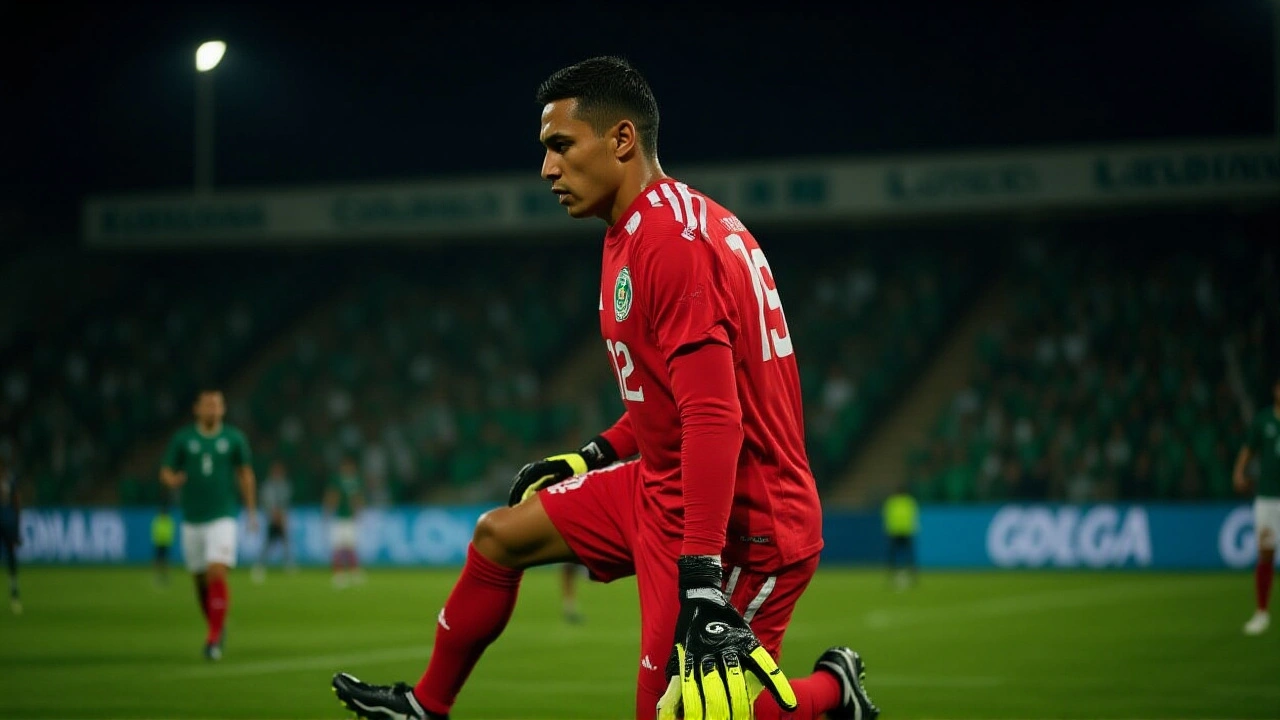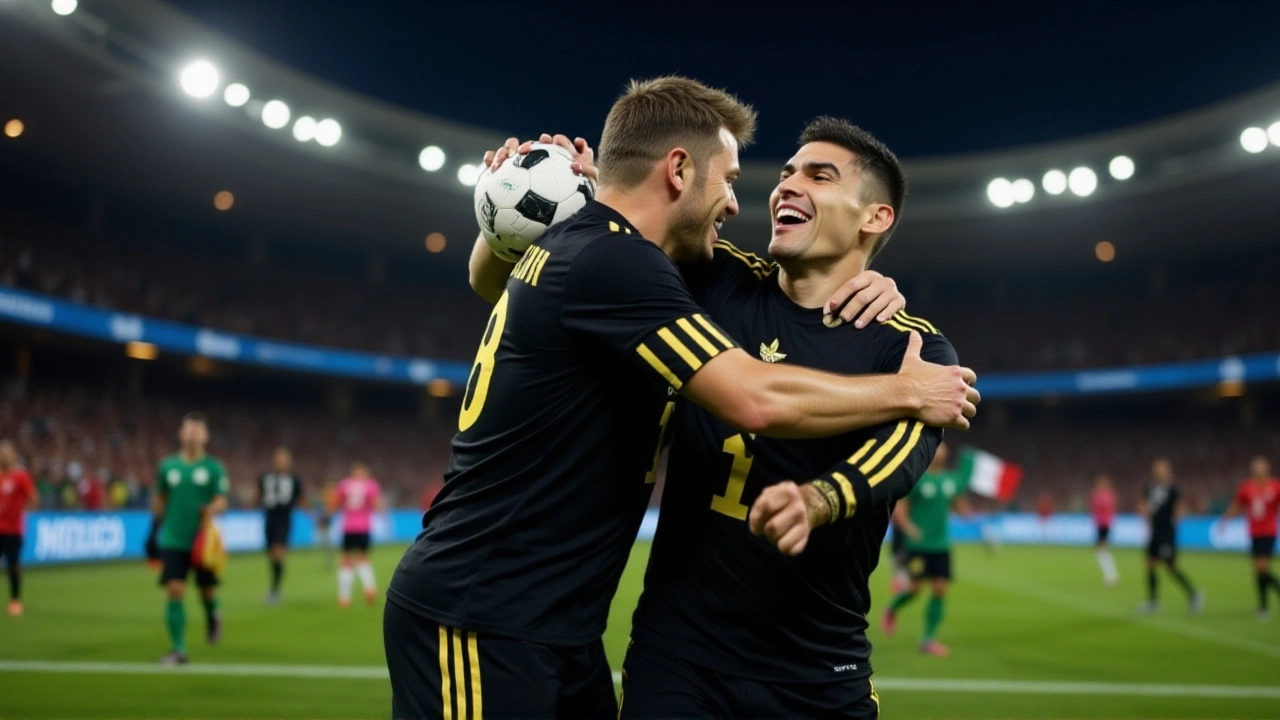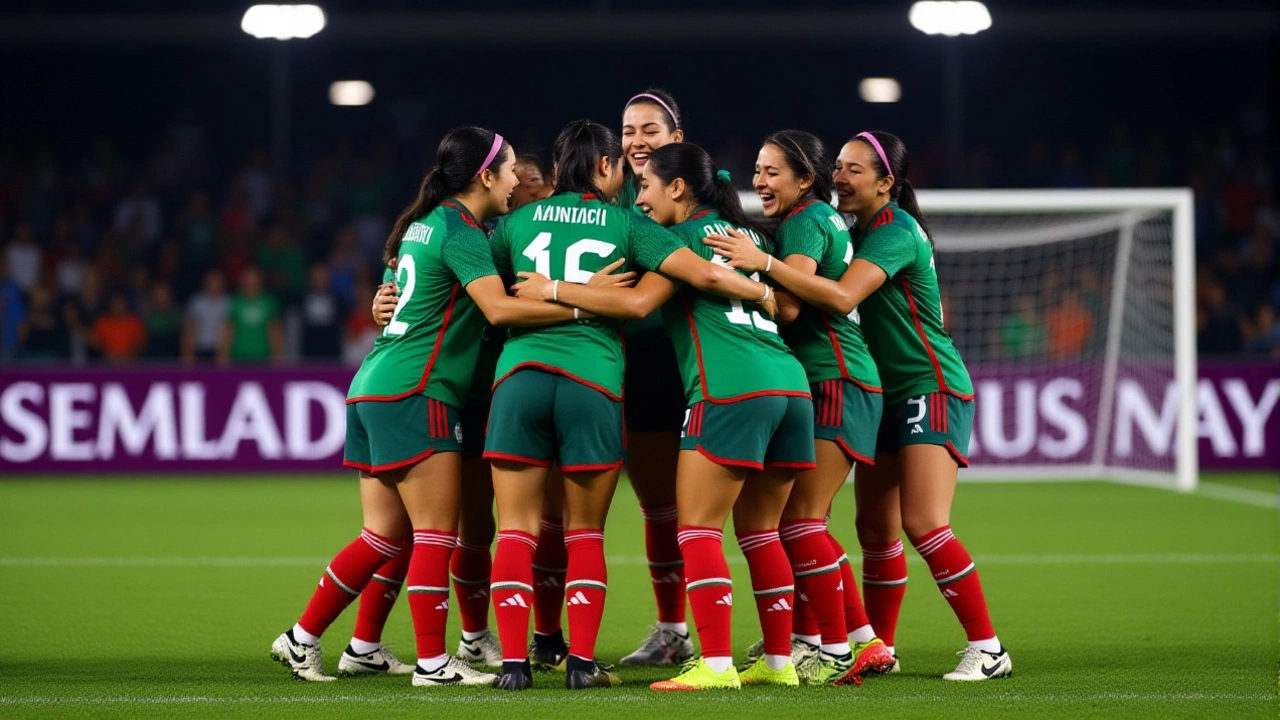
Two players from Club Deportivo Guadalajara — better known as Chivas — played key roles in Mexico’s hard-fought 0-0 draw against Uruguay in a physical international friendly on Saturday evening. At the heart of Mexico’s defensive resilience was goalkeeper José Antonio "El 'Tala' Rangel", whose calm presence and authoritative command of the box earned praise as "leadership and solidity in goal for Chivas and the Mexican national team." Though the match lacked goals, it delivered intensity — a bruising, high-stakes encounter that felt more like a World Cup qualifier than a tune-up game.
Chivas’ quiet influence on the national stage
It’s no surprise that Chivas, Mexico’s most storied club with a legacy built on fielding only Mexican-born players, continues to be a pipeline for the national team. But this match highlighted something deeper: how a club’s identity can shape the soul of a national side. Rangel, despite the lack of official stats or caps listed in public records, clearly carries the weight of expectation. His nickname — "El 'Tala'" — echoes through Guadalajara’s Estadio Jalisco, a moniker earned through grit, not marketing. Whether he’s 28 or 32, whether he’s made 10 or 25 appearances for El Tri, his role in this match was unmistakable: the last line of defense when Uruguay pressed with pace and physicality.The second Chivas player on the pitch? Still unnamed. No position, no number, no highlight reel moment. Just presence. That anonymity speaks volumes. In a system where club loyalty runs deep, not every contributor needs the spotlight. Maybe it was a fullback holding the line. Maybe a midfield enforcer breaking up play. Whoever he is, his contribution was part of a collective effort that held Uruguay — a team that’s reached the World Cup final twice — at bay for 90 minutes.
A match defined by grit, not glory
The term "physical friendly" doesn’t come up often in football reporting — but when it does, you know the referee had his hands full. Uruguay, known for their no-nonsense style, came out swinging. Mexico, under interim management ahead of the 2026 World Cup qualifiers, responded in kind. No goals, yes — but there were tackles that echoed through the stadium, headers that cleared the line by inches, and at least one moment when a Chivas player blocked a close-range shot with his chest, then got up and shouted at his teammates like it was the final minute of a Copa América final.There were no yellow cards reported. No fouls detailed. No possession stats. Just silence on the scoreboard and noise in the effort. That’s rare in today’s data-driven game. This wasn’t about xG or passing accuracy. It was about will. And for Mexico, especially with so many players based abroad, having two Chivas men anchoring the backline meant stability — the kind that comes from playing together for years, not just weeks.

Why this draw matters more than it looks
On paper, a 0-0 draw against Uruguay might seem like a missed opportunity. But in context? It’s a statement. Uruguay finished fourth in the 2022 World Cup. They’ve got veterans who’ve played in five World Cups. Mexico? Still rebuilding after a disappointing 2022 campaign and the departure of longtime captain Andrés Guardado. This wasn’t about winning. It was about proving they could stand toe-to-toe with one of CONMEBOL’s toughest sides — and not just survive, but dominate the defensive third.For Rangel, this performance could be the turning point. He’s not a household name like Guillermo Ochoa or Alfredo Talavera. But in a national team that’s struggled with consistency between the posts, his composure under pressure might just earn him a starting spot in next month’s Gold Cup qualifiers. And for Chivas? It’s a quiet win. While clubs like América and Tigres get headlines for signing stars, Chivas is quietly shaping the identity of Mexico’s national team — one solid, unsung performance at a time.

What’s next for Mexico and Chivas?
Mexico’s next official fixture is a World Cup qualifier against Panama on March 21, 2026 — but before that, they’ll face Costa Rica in another friendly in late January. Rangel’s name will likely be on the roster. The second Chivas player? If he’s still performing at this level, he won’t stay anonymous for long. Meanwhile, Chivas themselves return to Liga MX action on December 1, 2025, against Club América — a rivalry match that will be watched by millions. If Rangel’s form holds, expect him to be in goal. If the mystery player is still contributing, expect scouts from Europe to start asking questions.There’s no trophy on the line. No rankings affected. But in football, sometimes the most important games are the ones nobody talks about — until you realize they changed everything.
Frequently Asked Questions
Who is José Antonio "El 'Tala' Rangel" and why is he important to Mexico’s defense?
José Antonio "El 'Tala' Rangel" is the goalkeeper for Club Deportivo Guadalajara (Chivas) and a key figure in Mexico’s national team setup. Though his full career stats aren’t widely published, his performance in the 0-0 draw with Uruguay highlighted his leadership and composure under pressure. He’s become a symbol of defensive reliability — a rare trait in a Mexican squad often criticized for inconsistency between the posts. His presence gives the backline confidence, and he’s likely to be considered for starting roles in upcoming qualifiers.
Why wasn’t the second Chivas player named in the reports?
The lack of a name for the second Chivas player reflects the nature of the match — a low-profile friendly with minimal media coverage. OneFootball’s reports focused on the most prominent figure, Rangel, whose nickname and reputation made him a natural focal point. The second player, likely a midfielder or defender, may be a fringe national team member or a squad player getting minutes. Without official lineups or post-match analysis, his identity remains unconfirmed, but his contribution was still vital to Mexico’s clean sheet.
What does this result mean for Mexico’s World Cup 2026 preparation?
Holding Uruguay to a 0-0 draw in a physical match is a strong indicator that Mexico’s defensive structure is improving. With 2026 World Cup qualifiers starting in March, this result suggests the team can compete with South American powerhouses even without their star forwards. Rangel’s performance, in particular, may influence the coaching staff’s decision to prioritize defensive stability over flashy attacking play — a shift that could define Mexico’s campaign.
How does Chivas continue to influence Mexico’s national team despite not winning recent league titles?
Chivas’ influence comes from its unwavering policy of fielding only Mexican players and developing homegrown talent through its academy. While rivals sign foreign stars, Chivas builds identity through loyalty and tradition. Players like Rangel embody that ethos — they’re not just athletes; they’re symbols of national pride. Even without league titles since 2017, Chivas remains a critical supplier of core national team members, especially in defense and midfield, where discipline and cohesion matter more than flashy stats.
Was this match officially recognized by FIFA?
Yes, international friendlies like this one are officially recognized by FIFA, even if they don’t count toward rankings or tournaments. They’re used to test tactics, assess player fitness, and build team chemistry ahead of major competitions. While no official match report was released, the participation of national team players under official caps confirms its legitimacy. The result will appear in FIFA’s friendly match database, though without detailed statistics due to the match’s low-profile nature.
What’s the significance of the "Chivas Icon for official team" phrase in the report?
The phrase appears to be a metadata tag or digital watermark used by OneFootball’s content system, likely tied to how they categorize club-affiliated players in national team reports. It doesn’t carry official meaning but signals that the player is recognized by the platform as a core representative of Chivas. For fans, it reinforces the club’s cultural weight — Chivas isn’t just a team; it’s an institution that shapes Mexican football identity at every level.

Write a comment